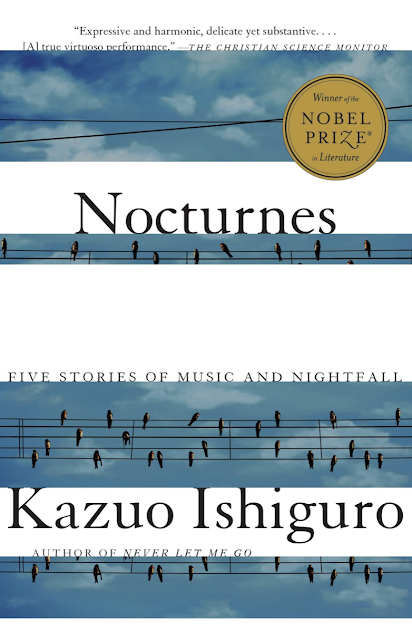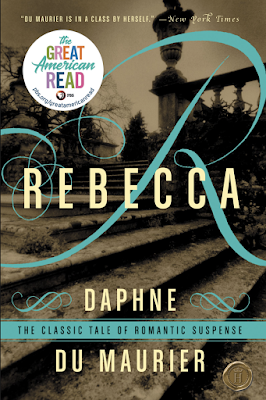"Nocturnes: Five Stories of Music and Nightfall" by Kazuo Ishiguro (published 2009)

Kazuo Ishiguro's "Nocturnes" features five light and entertaining anecdotal stories concerning music and the rocky lives of traveling classic and classical musicians. The characters in each story vary, yet each is a bit of an odd, awkward bird trying to make it in the music world. The book is very enjoyable and would be the perfect read for a flight. I say this because of the various geographies described, though all European, they are also all not shy in taking liberties of opinion on said cultures and their people: a refreshing take. Nocturnes is reflective of the relationships of ordinary people, and their dreams and goals. Though there was some lack of passion here. The passion of the musicians within the stories was dulled by obstructions of frustration and insecurity. In short, the fire within them, that must live on and grow within any musician's heart and soul, was burning them out. Throughout the book there is a pity underlining the text that wasn't ...


